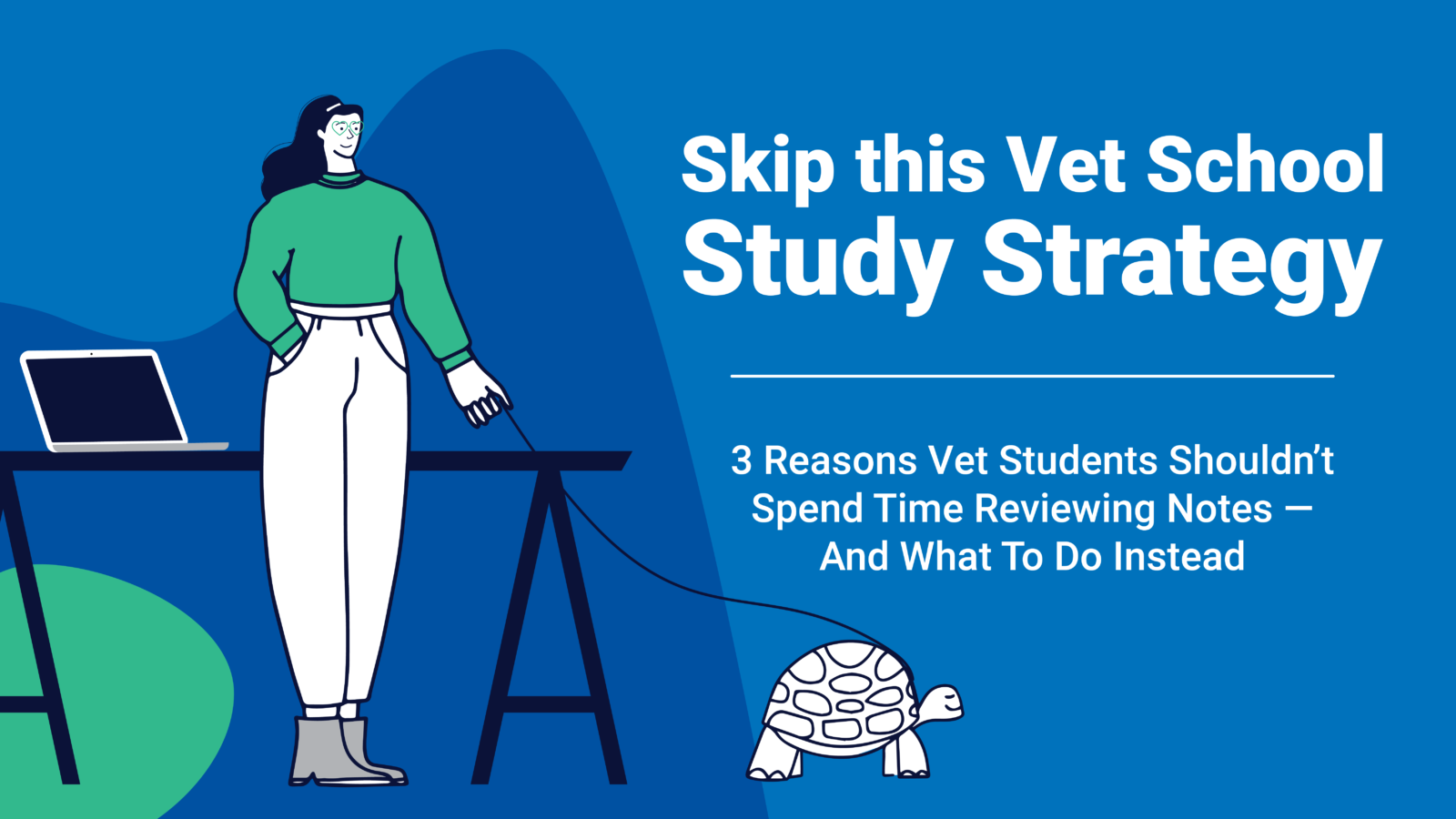3 Reasons Vet Students Shouldn’t Spend Time Reviewing Notes — And What To Do Instead
If you’re struggling in vet school, your study habits, not your knowledge, could be to blame. Are you putting in hours and hours reviewing or re-reading your material with almost no improvement? Then, it might be time to switch up your vet school studying strategy.
Before we dig further into why reviewing material is ineffective, let’s define what review is. Review is when the learner directly re-reads, “looks over,” or skims material they’ve already studied. Review is revisiting content with the information right in front of your face.
Now, if you’re spending a lot of time on review and you’re succeeding, that’s great. Then this blog post isn’t for you. However, if you’re putting in the work and not seeing the results, read on.
Here are three reasons review typically doesn’t work at the vet school level:
1. Review is a passive way to study.
The first problem is that review is passive. When you’re pouring over your books or hunched over your laptop for hours a day, it feels like you’re putting in effort. And you are. Unfortunately, it’s not the right kind of effort.
So, what should you be doing? You’ve probably heard the cliché “the mind is a muscle.” That analogy, while biologically inaccurate, has become so common for a reason. Just like your muscles need to experience activity and resistance to grow, real learning requires active energy and struggle. Forcing your mind to recall information — without having it in front of you — is a great way to make your studying more active. That’s why we recommend retrieval practice over review.
2. Review is inefficient. And, in vet school, time is a commodity.
Second, review is simply inefficient. Without the aforementioned struggle, merely reviewing your veterinary textbooks or lecture notes doesn’t help you identify your problem areas. So, you keep re-reading all of the material when your time would be better spent focusing on the topics or concepts you’re struggling with the most. And you don’t have time to waste when you’re in vet school or studying for boards.
Interested in learning more about vet school study strategies? Explore our blog and YouTube channel for more strategies and insights.
3. Review creates “the trap of familiarity.”
When you were in undergrad, being familiar with the material might have been enough to land you good grades. But how does familiarity treat you as a veterinary student?
The short answer is: not great. It allows you to narrow down to two or three answer options on your tests and say, “I’m sure it’s one of them, but I don’t know which one.” That’s because your knowledge only goes three feet deep, and it needs to go five feet deep. In short, familiarity doesn’t cut it at this level. You have to have an in-depth understanding.
And here’s the biggest problem with review. It helps you get familiar with the material, and it’s easy to confuse familiarity with learning. That’s because recognition feels good. As we’re scanning and rescanning the material, we get rewarded. When we see something we’ve seen before, our brains say “yep! I recognize that! I know it!” And you do, when it’s right there in front of you. But that’s not how things work on test day when you have to recall the information without any prompts.
A Better Vet School Study Strategy
To “train” for the NAVLE or other vet school tests, you need to metaphorically sweat it out and force your brain to recall the information over and over to ensure optimal learning. That’s why we recommend retrieval practice as one of the best methods for studying medicine.
Interested in learning more about retrieval practice? This video shows you how to practice it on your own.
